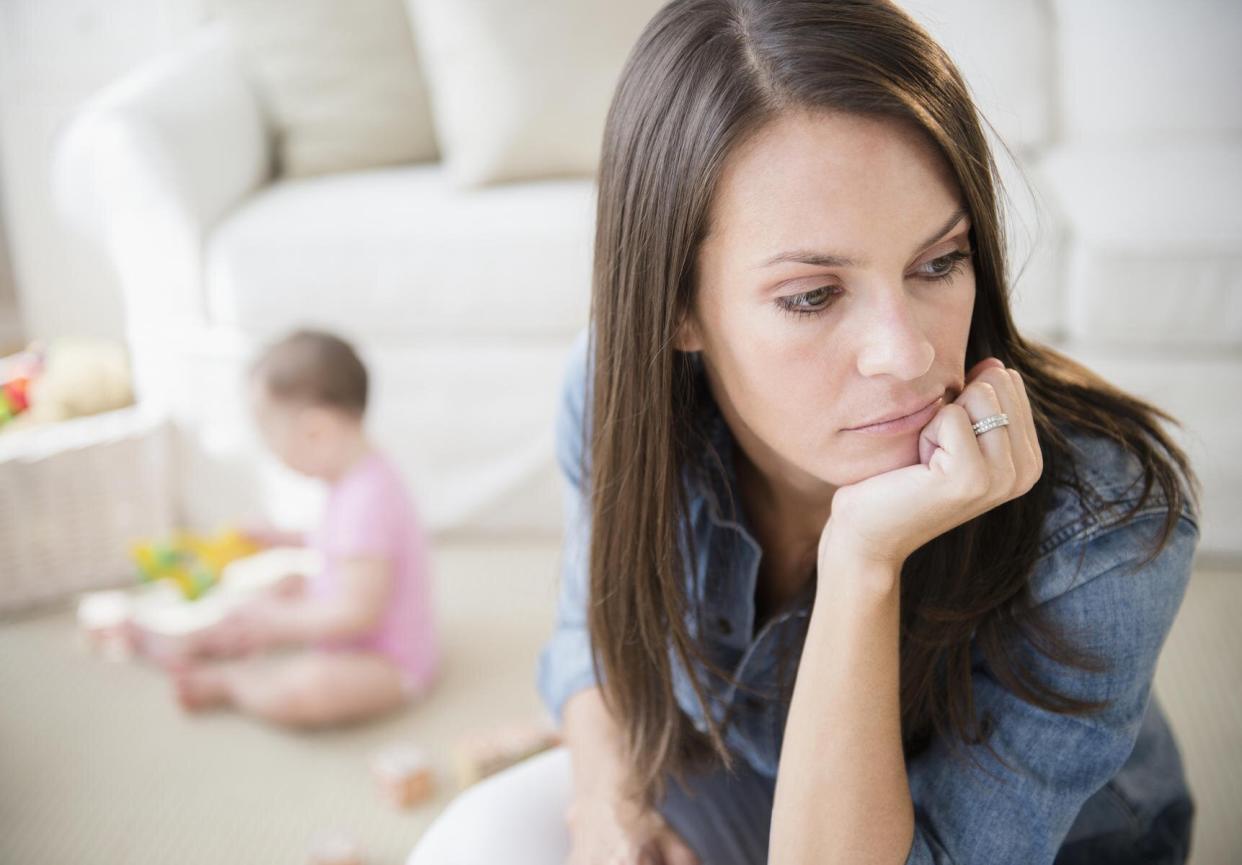One in 5 New Moms Are Staying Silent About Postpartum Mood Disorders

Tetra Images - Jamie Grill/Getty Images
The postpartum period is anything but easy. Between the sleep-sucking experience that is raising a newborn, the physical nature of the recovery process and the dramatic hormonal shift that happens after you give birth, it's only natural for new moms to struggle a bit. If you experience this, it's nothing to be ashamed of at all.
But if recent research is any indication, many moms who develop postpartum mood disorders are staying, well, mum about their feelings. Researchers observed 211 women who had given birth in the past three years to come to this finding, which is published in Maternal and Child Health Journal.
The women involved self-reported any symptoms of mood disorders in the postpartum period via an anonymous survey. While just over half the women involved met the criteria set out for postpartum mood disorders, just 20 percent of this group sought help for the issue.
This is alarming: Mood disorders (which can include postpartum depression, anxiety and psychosis) don't just make you feel like you're not yourself; they also pose threats to your overall mental and physical well-being. Seeking treatment can make a world of a difference—but if these findings are any indication, as many as 1 in 5 women who suffer postpartum mood disorders do so without any professional help.
“We know that 10-20 percent of women experience significant mood disorders after childbirth, and those disorders can adversely affect the physical and emotional well-being of both mothers and children...This work highlights the importance of support networks and the need to normalize the wide variety of reactions women have after childbirth,” says Betty-Shannon Prevatt, a PhD candidate and the study's lead author, according to a university release. “We need to make it OK for women to talk about their mental health, so that they can have better access to care. Working with the people around new mothers may be key.”
According to the researchers, there are no guidelines in place for medical professionals to question new moms about their mental health—if that changes, maybe moms will be more willing to acknowledge the issue. A mom's circle matters too: A strong support system is associated with higher likelihood of seeking treatment. On the flipside, women who are unemployed, have histories of mental health issues and experience severe symptoms appear less likely to get help.
From a social standpoint, we absolutely understand why mothers may not be verbalizing their own mental needs. Early motherhood is such a selfless time, and many of us put aside our own well-being to care for our kids. Add the (completely misplaced) social stigma into the mix—maybe moms are afraid that if they come clean about what they're feeling, it'll appear that they're unhappy in their roles as mothers. There is so much pressure placed on moms these days, but it's important to remember that if you're experiencing any symptoms of mood disorders, it doesn't mean you're failing as a parent or don't love your kids—it just means you need to take care of yourself.

